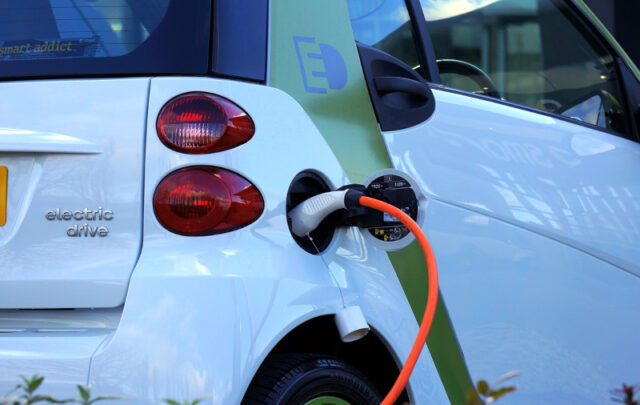Crude oil futures rose on concern that a promised Saudi Arabian production rise and any Organization of Petroleum Exporting Countries quota increase at a meeting next week won’t meet rising demand.
Saudi Arabia assured the U.S. it will boost output to 9 million barrels a day in June. The kingdom pumped 8.35 million a day last month, according to Bloomberg estimates. It also urged OPEC to raise output quotas. Limited U.S. refining capacity and political unrest have helped push prices to records, OPEC ministers said at a conference in Amsterdam.
“Some extra Saudi Arabian oil is nice but the impact will be marginal,” said Marshall Steeves, an analyst with Refco Group Ltd. in New York. “Basically what we need is new refineries and a sense of security in the Middle East.”
Crude oil for July delivery was up $1.27, or 3.2 percent, at $41.20 a barrel at 11:20 a.m. on the New York Mercantile Exchange. Oil rose to a record $41.85 a barrel on May 17. Prices were up 41 percent from a year earlier.
In London, the July Brent crude-oil futures contract was up $1.22, or 3.3 percent, at $37.73 a barrel on the International Petroleum Exchange. Prices were 44 percent higher than a year earlier.
OPEC ministers, in an informal meeting at the ninth International Energy Forum on Saturday, delayed a decision on quotas until an official meeting in Beirut on June 3.
`Send a Signal’
“The last time I can recall the Saudis doing anything like this was in November 1997 when OPEC was preparing for the Jakarta meeting,” said Bill O’Grady, director of fundamental futures research at A.G. Edwards & Sons Inc. in St. Louis. “They only make announcements like this when they are trying to send a signal that they mean business.”
OPEC boosted quotas by almost 2.5 million barrels a day at the Jakarta meeting. The increase came as Asian economies slumped, sending oil in New York to a low of $10.35 a barrel in 1998.
Finance ministers from Group of Seven countries yesterday welcomed Saudi Arabia’s move and urged all oil producers to pump more.
“There’s no divisions, no disagreements within OPEC,” Saudi Oil Minister Ali al-Naimi told reporters in Amsterdam. “Price moderation is the responsibility of consumers as well as producers.”
U.S. Energy Secretary Spencer Abraham, who met with five OPEC ministers this weekend at a conference in Amsterdam, said al- Naimi had assured him that requests for more oil will be met.
Saudi Plans
Saudi Arabia is willing to go as high as 10.5 million barrels a day if needed, Abraham said, 37 percent above its current quota. The desert kingdom is the world’s top oil exporter and OPEC’s most influential member.
“I have no doubt that the Saudis will force OPEC to go along with the increase, because they would go it alone if an agreement were not made,” said Mordechai Abir, director of energy research at Burnham Securities Inc. in New York. “The Saudis want to rehabilitate its cooperation with the U.S. concerning energy policy.”
The 10 OPEC members with quotas, all except Iraq, pumped 25.85 million barrels of oil a day last month, exceeding their quotas by 10 percent, according to a Bloomberg survey of oil companies, producers and analysts.
“Prices have moved consistently higher over the last several months, even as OPEC was pumping above the sanctioned limit,” said Michael Fitzpatrick, a broker with Fimat USA Inc. in New York. “Increased energy demand, a consequence of expanding global economic activity, has been the chief cause for the rise in prices.”
The Organization for Economic Cooperation and Development last week raised its forecast for growth in its 30 nations to 3.4 percent this year, up from the 3 percent it predicted in November.
`Less Desirable’
The bulk of Saudi Arabia’s idle production capacity consists of sour crude, which is higher in sulfur than sweet grades and is harder to make into gasoline.
“It’s less desirable, especially when we’re trying to build gasoline supplies,” said Carl Larry, associate director of energy futures at Barclays Capital Inc. in New York. “The lower the sulfur content the easier and cheaper it is to break down into gasoline, which is a low-sulfur product.”
An OPEC increase would come as refiners are struggling to boost U.S. gasoline supplies before the peak-demand summer driving season. U.S. gasoline demand has averaged 8.8 million barrels a day this year, a 3.5 percent increase over a year earlier, according to the Energy Department.
Gasoline for June delivery was up 3.82 cents, or 2.7 percent, at $1.455 a gallon in New York. Prices reached $1.47 Thursday, the highest since the contract began trading in 1984. Futures were up 61 percent from a year ago.
Retail gasoline prices have followed futures higher. Pump prices for regular gasoline, averaged nationwide, rose 1 cent to a record $2.033 a gallon Friday, according to the AAA, formerly the American Automobile Association.





